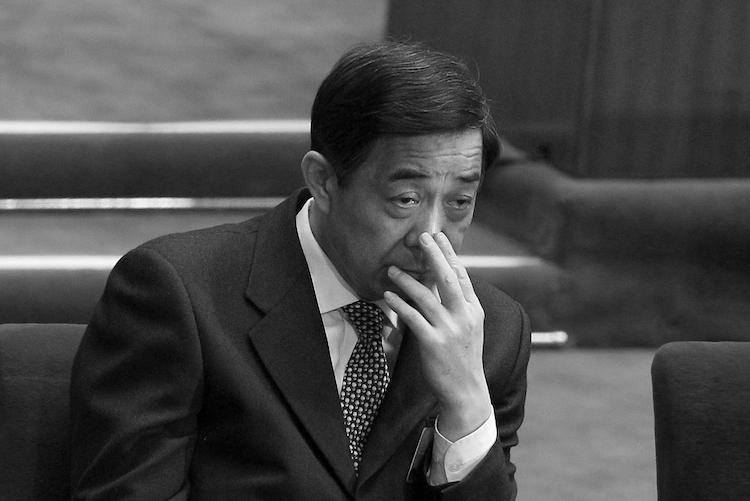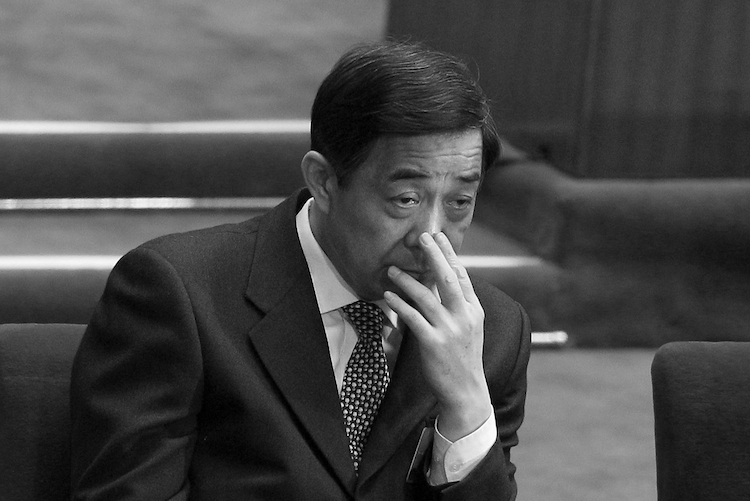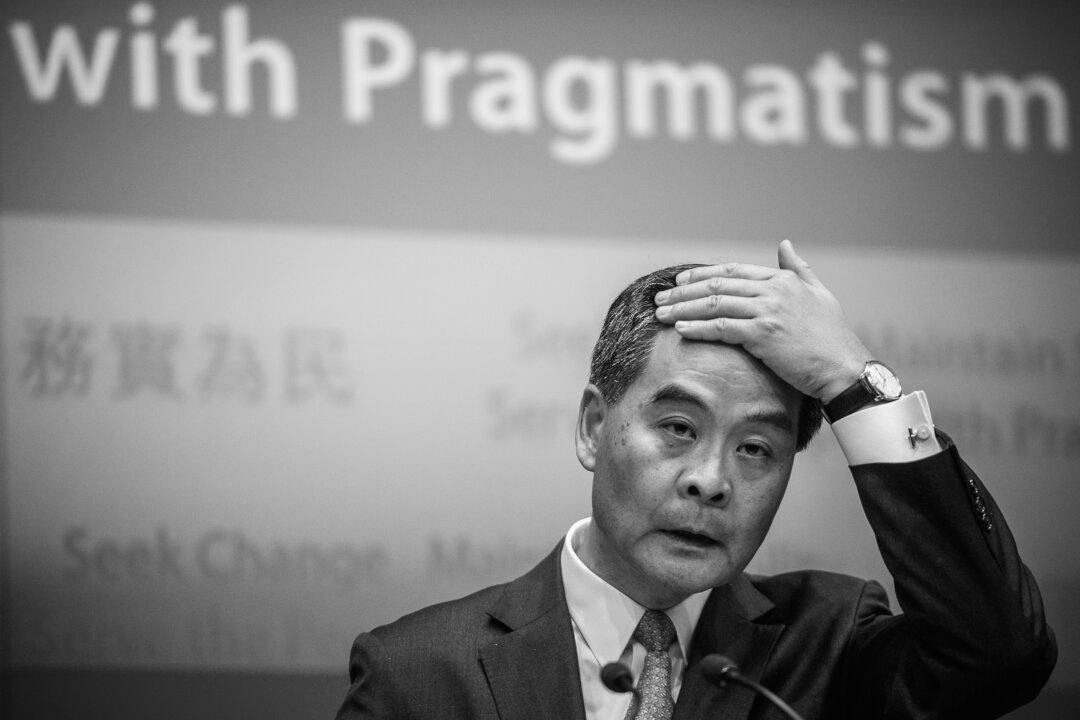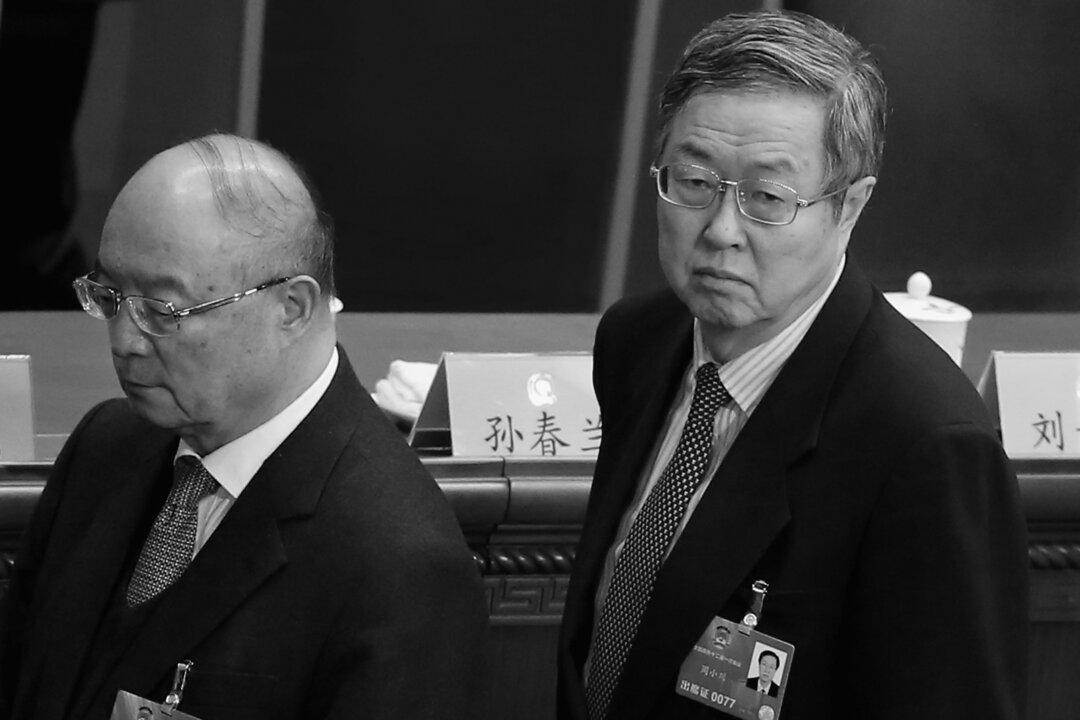A New York Times article detailing the alleged wealth of Premier Wen Jiabao has turned the planned peaceful transition to new Chinese Communist Party (CCP) leadership at the upcoming 18th Party Congress into open political war, according to a source familiar with preparatory discussions for the Congress.
In the ongoing seventh plenum of the 17th Party Congress being held behind closed doors in Beijing, the subject of how to define the case against disgraced official Bo Xilai has featured heavily on the agenda. The source reports the key question is whether to charge Bo with attempting to stage a coup.
If the accusation of attempting a coup is brought against Bo Xilai, then current Party head Hu Jintao and Wen Jiabao may propose that Bo be charged along with a group of coup organizers, which presumably includes former Party Head Jiang Zemin, security chief Zhou Yongkang, and Party powerbroker Zeng Qinghong, according to the source.
As The Epoch Times has previously reported, these four and other members of Jiang’s faction are determined to regain power in order to avoid being held accountable for the crimes committed in the persecution of the spiritual practice of Falun Gong, in particular the atrocity of forced, live organ harvesting.
The faction has tried various ploys to disrupt or delay the handover of power to a new generation of leaders at the 18th Party Congress. Among these ploys was the coup attempt that now hangs over the heads of Bo Xilai and the rest of Jiang’s faction.
After Bo Xilai’s former police chief, Wang Lijun, fled to the U.S. Consulate in Chengdu on Feb. 6 and then was sent to Beijing for investigation, Party central learned of a coup planned by Bo Xilai, Zhou Yongkang and others that was to be carried out sometime after the 18th Party Congress.
Exposing Leaders’ Wealth
According to the source, the most recent method for gaining advantage employed by Zhou Yongkang was what the source termed the “suicidal attack” against Wen Jiabao. The article published in The New York Times is understood by Party insiders as serving the agenda of Zhou Yongkang, the insider said.
The attack on Wen Jiabao was preceded in June by a similar article in Bloomberg exposing the wealth of Xi Jinping’s family. According to the news website Boxun, the Bloomberg article was considered by a faction affiliated with Bo Xilai as practice for the article on Wen Jiabao.
Rumors are now circulating in Beijing that a similar article exposing the wealth of Hu Jintao’s family is in the works.
According to several Chinese-language news websites based outside of China, Wen Jiabao responded to The New York Times article in closed Party meetings by offering to make public his family’s assets.
Wen’s offer is unacceptable to other members of the Party leadership. If Wen did that, then other Party leaders would be put on the spot. The publication of the details of the wealth amassed by individual leaders threatens all members of the leadership, the source said.
Analysts say the leaders understand that the publication of information about the fortunes they have gained would bring hatred of the CCP officials by the Chinese people to a fever pitch. The publication of The New York Times article has put Hu and Wen in a position from which they can’t back down.
If Hu and Wen let the threat posed by The Times article go unanswered, then Party leaders may swing behind Zhou Yongkang, who has otherwise been successfully marginalized, analysts say. Either Hu and Wen must finally subdue Zhou and Jiang’s faction, or Hu and Wen may themselves face punishment.
Counter Attack
A terse two sentence announcement in Xinhua on Oct. 26 (Beijing time)—the statement was published later on the same day that the New York Times story appeared—signaled the counterattack by Hu Jintao and Wen Jiabao. The statement said, “The Supreme People’s Procuratorate has decided to put Bo Xilai under investigation for alleged criminal offenses, as well as impose coercive measures on him in accordance with the law.”
Also on Oct. 26, Xinhua reported the removal of Zhang Jun, vice president of the Supreme People’s Court from his position. Last year, Zhang Jun showed support for Bo Xilai’s Maoist “hit the black and sing red” campaigns in Chongqing.
The hit the black campaign putatively targeted mobsters, while the sing red campaign involved singing Maoist songs along with other expressions of devotion to the Party. Together they help comprise the Chongqing Model that Bo Xilai offered as a future path for the CCP.
The involvement of the Supreme People’s Procuratorate marks a significant elevation of the importance given Bo’s case.
According to the Hong Kong-based Apple Daily, if Bo Xilai’s case is investigated by the Supreme Procuratorate, then it will be tried by the Supreme Court. The trial of Bo Xilai by the Supreme People’s Court would be the highest level trial of a Party official since the Gang of Four, who were tried by a special Party tribunal.
Whether Jiang Zemin, Zhou Yongkang, and Zeng Qinghong will be charged is unclear at this time.
Media and Military
Along with elevating the importance of Bo Xilai’s case, Hu Jintao has made other moves to strengthen his position.
Hu has put in his own man in as editor-in-chief of the Communist Party mouthpiece People’s Daily. On Nov. 1, China Central TV announced that Wu Hengquan, the former editor-in-chief, had been appointed as deputy director of the Propaganda Department.
According to the Japanese newspaper Sankei Shimbun on Nov. 1, Jiang’s office in the building of the Central Military Commission was very recently closed down. Jiang had kept a commodious office in the building, with private secretaries, since stepping down from the Military Commission in 2004.
Along with taking Jiang’s office from him, Hu Jintao sent out a series of stern calls through military publications, demanding allegiance to Party central and himself personally.
An article on Nov. 1 in People’s Liberation Army Daily, the primary mouthpiece of the Party’s military forces, was titled “Strengthening Spirit and Ideology to a New Level,” with a subtitle urging “Deeply Study and Implement Chairman Hu’s ‘July 23’ Important Speech.”
The piece included the phrase that “hostile forces inside and outside China are beginning to stir,” and that “on important, big questions, you must be clear-headed, and your stance must be firm.”
It said, toward the end: “Ideologically, politically, and operationally, you must closely hew to Party Central and the Central Military Commission. You must resolutely listen to the orders from Party Central, the Central Military Commission, and Chairman Hu.”
With research by Jane Lin.
Editor’s Note: When Chongqing’s former top cop, Wang Lijun, fled for his life to the U.S. Consulate in Chengdu on Feb. 6, he set in motion a political storm that has not subsided. The battle behind the scenes turns on what stance officials take toward the persecution of Falun Gong. The faction with bloody hands—the officials former CCP head Jiang Zemin promoted in order to carry out the persecution—is seeking to avoid accountability for their crimes and to continue the campaign. Other officials are refusing to participate in the persecution any longer. Events present a clear choice to the officials and citizens of China, as well as people around the world: either support or oppose the persecution of Falun Gong. History will record the choice each person makes.
The Epoch Times publishes in 35 countries and in 19 languages. Subscribe to our e-newsletter.
Click www.ept.ms/ccp-crisis to read about the most recent developments in the ongoing crisis within the Chinese communist regime. In this special topic, we provide readers with the necessary context to understand the situation. Get the RSS feed. Who are the Major Players?




